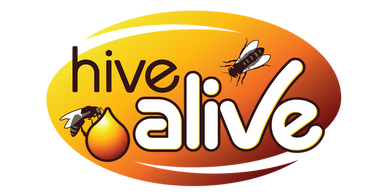Giving your bees water in hot summer weather
Jul 21, 2025
Is Heat Stress Hurting Your Hives? Why Hydration, Ventilation & Nutrition Are Vital for Summer Beekeeping in Europe
Across Europe, from southern Spain to northern Germany, beekeepers are feeling the effects of rising summer temperatures. With more frequent heatwaves and changing rainfall patterns, it’s no surprise that colonies are behaving differently, and not always for the better.
If you’ve noticed sluggish foraging, disrupted brood patterns, or bees clustering at odd parts of the hive, your bees may be struggling with heat stress.
High temperatures and drought conditions can severely impact colony health, but with the right approach, you can help your bees stay productive and resilient through the toughest part of the season.
Let’s explore what the science says about heat stress and hydration, and what practical steps European beekeepers can take to protect their hives.
What the Research Tells Us About Heat Stress
Honey bees are remarkably adaptable creatures, but they’re not invincible. A growing body of research, including a recent USDA report on bee hydration, has shed light on how extreme heat alters both bee behaviour and hive dynamics.
Here’s what happens under prolonged heat exposure:
-
Behavioural changes: Bees move away from the brood to reduce heat exposure to developing larvae.
-
Metabolic response: Bees produce compounds like trehalose and polyols to cope with cellular stress.
-
Reduced foraging: At high temperatures (above 40°C), dehydration and overheating can force foragers to stay home.
-
Hive structure alterations: Heat stress can impact comb layout and disrupt normal colony functioning.
Unmanaged heat stress can lead to smaller bee populations, weakened immune responses, and poor readiness for autumn and winter.
Why Heat Means Less Forage in Europe
It’s not just the bees that struggle in hot weather. Drought and high temperatures across Europe, from the Mediterranean to central regions, are also impacting flora.
Here’s why nectar availability drops during heatwaves:
-
Flowers produce less nectar or stop altogether to conserve water.
-
Blooming periods shorten, giving bees less time to forage.
-
Soil moisture evaporates rapidly, stunting plant growth and flowering.
This leads to a nectar dearth, especially in July and August, leaving colonies without the food they need to support brood rearing or build winter stores.
European Beekeeper Action Plan for Heatwaves
To keep your hives healthy and productive through the summer, consider these practical, proven strategies:
✅ 1. Enhance Hive Ventilation
Use mesh floors and upper entrances to allow air to circulate freely through the hive. In some regions, lifting the roof slightly (with a spacer or matchstick) allows hot air to escape while maintaining protection from rain.
💧 2. Provide Water Sources
Bees use water for drinking, cooling the hive, and feeding larvae. Place shallow containers filled with clean water and floating supports (like cork or gravel) near the hives to prevent drowning and overheating during collection.
Top Tip from the Yard
Try adding a small amount of HiveAlive Liquid to your bee waterers. Not only might it support gut health, but it also reduces algae buildup in outdoor water bowls.
🍯 3. Feed During Nectar Gaps
When forage is low, providing sugar syrup is an important way to sustain colony strength. By mixing HiveAlive Liquid into your feed, you’re going beyond just energy—you’re supporting digestion, immune function, and reducing disease risks.
Why Supplemental Feeding Matters in a Hot European Summer
Supplemental feeding isn’t just for winter. In many parts of Europe, especially Mediterranean and Central European zones, summer is now a major risk period due to changing climate patterns.
Feeding with sugar syrup (ideally 1:1 in summer) helps:
-
Prevent brood cannibalism caused by lack of resources
-
Sustain colony strength ahead of the autumn build-up
-
Reduce stress that makes bees more vulnerable to diseases and queen issues
By adding HiveAlive Liquid to your syrup, you’re giving your bees an edge: improved gut health, reduced pathogen load, and better overall resilience.
Stay Ahead of Climate Stress
European summers are changing. With hotter, drier periods becoming more frequent, smart beekeeping practices need to adapt.
-
Watch weather forecasts and local nectar flow reports
-
Track your colonies’ feed consumption and foraging patterns
-
Keep an eye on queen performance and signs of disease
Proactive strategies, ventilation, hydration, and targeted nutrition, can mean the difference between strong hives and summer collapse.
In Summary: Support Your Bees When Nature Can’t
Heat stress is a growing concern for beekeepers across Europe. It affects bee behaviour, brood development, and colony resilience. By combining proper ventilation, water access, and nutritional support, especially during nectar dearths, you can help your bees not just survive, but thrive.
To learn more about how hydration affects bee health, check out this excellent summary from the USDA: The Buzz Around Hydration
